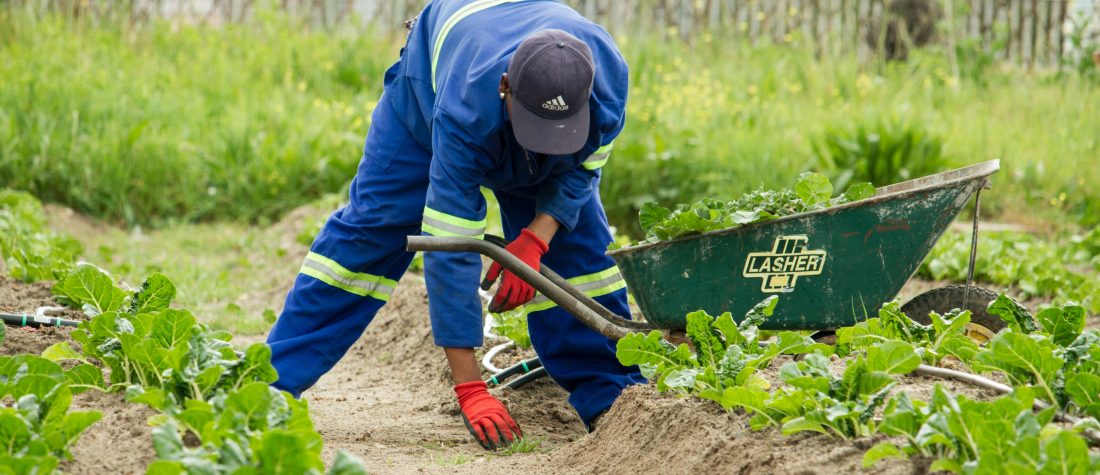The European Union systematically engages with over 150 countries across the globe – particularly in areas of trade, sanctions and assistance. Its neighbouring regions remain the main focus of its external policy and the EU has set priorities to face global challenges, promote its values and contribute to peace and prosperity in the world. Africa is of particular interest as their economies realise their potential.
The EU and Africa are due to agree a new partnership deal at the AU-EU Summit in February next year. It is based on five partnership pillars: for green transition and energy access, for digital transformation, for sustainable growth and jobs, for peace and governance, and on migration and mobility.
Within this deal is a necessity to join efforts to reach the sustainable development goal of zero hunger and address the challenges of nutrition and food security by boosting safe and sustainable agri-food systems. Agriculture is a key industry for Africa, accounting for at least 23 per cent of sub-Saharan Africa’s GDP and providing employment for about 40 per cent of the workforce. However agricultural exports only account for around 5 per cent by volume, a figure that Africa wishes to increase.
The EU’s Farm to Fork (F2F) strategy aims to make the European food system more sustainable through a set of stringent targets and environmental standards, in addition European farmers have asked that imported products should meet the same standards they have to comply with in order not to affect their competitiveness. This creates a number of concerns for African farmers as they require an approach that is adapted to the realities of the continent.
Last week, your correspondent had the chance to speak with Mr Ojepat Okisegere (the chief executive of Kenya’s Fresh Food Consortium and a key representative for East African Farmers). For Okisegere, the EU’s current approach is both leaving African farmers poor and hindering the continent’s sustainable development. He argues that African farmers wish for reciprocity and understanding from the EU, that they need a green deal adapted to the realities of the continent. African farmers face different pressures from a tropical climate and different crop pests and diseases.
Okisegere’s areas for review
- Please – no deviation
Firstly, the EU shouldn’t deviate from established international global trading standards. The cost of additional burdensome regulation and separate compliance criteria is simply unfair, as Africans will have to adapt to varying agricultural standards that differ from the established international WTO agri-food trading standards. For example, the EU is looking to drop the Maximum Residue Levels (MRLs) on neonics. This blanket approach makes no sense, because there are no bees in cocoa. We fully support the need to help bees thrive, but why limit access to the necessary technology based on a redundant argument?
- Adapt… and thrive
We need a localised adaption of the EU’s Green Deal to the realities of Africa. The starting base of discussions cannot be the same. The EU wants a 50 per cent cut in pesticide use but Africa is yet to fully mechanise and modernise its agricultural sector. Africa uses far less pesticides per hectare than in Europe and yields are vastly different. The average African farm performs at 40 per cent of their potential. For example, Maize is a staple crop in Africa for food security and livelihoods, the average yield is 1.8 tonnes per hectare in Sub Saharan Africa whereas the EU average is 7.9 tonnes.
The EU approach to pesticides cannot be the same as African farmers need inputs that may not be needed in Europe. Not only do we have tropical climatic conditions and different soils but pests unique to Africa like Fall Armyworm and Desert Locusts can have a devastating effect on staple crops for food security and livelihoods.
- Equality matters
There must be a genuine partnership of equals between Africa and the EU. The approach needs to be grounded in science and the sustainable development needs of Africa. African stakeholders are asking for the EU to let them trade rather than being left dependent on aid.
The EU’s current impact assessments are based on the EU27 risk assessments and do not take into account the specific realities of the rest of the world. Indeed, organisations such as the European Centre for Development Policy Management have stated that Farm to Fork could have unintended consequences, worsening food poverty in Africa and increasing global warming outside the EU. Additionally, Egerton University’s Tegemeo Institute of Agricultural Policy and Development of Kenya shows that reducing pesticide use will lead to higher food prices and lower yields in a continent that already has more than half of the world’s population suffering from food insecurity.
- No hidden agendas
Finally, the EU should re-target EU funds away from political movements and foundations that push their own agenda in Africa, such as Greenpeace and the Stiftungs. These welcome EU resources would be far better spent on supporting local initiatives in areas such as digital technology in the supply chain, support for the appropriate refrigeration methods to minimise food waste, training in sustainable agronomic practises and the safe use of synthetic and organic pesticides.
===========================
As the EU and the African Union gear up to agree new partnership areas, both sides agree they should strengthen agriculture and its contribution to sustainable and inclusive development. This will only be achieved if the starting premise is that a one-size-fits-all approach won’t work. Common standards must prevail, rather than arbitrary EU standards being imposed upon a very different continent.


